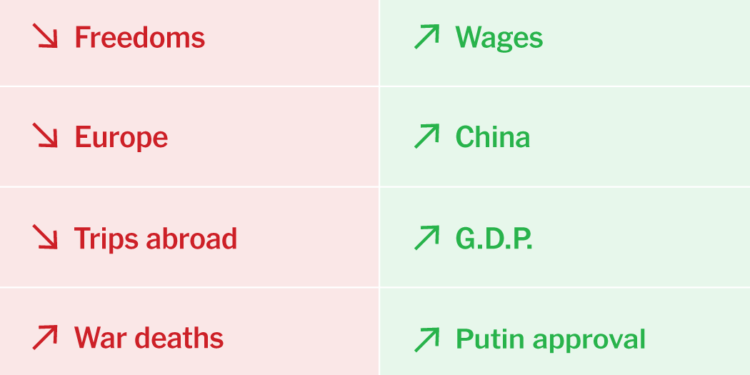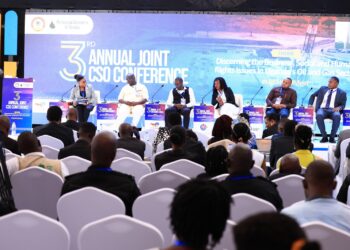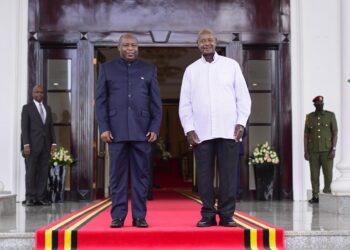By THE NEW YORK TIMES
Two years of war have remade Russia.
Isolated from the West, it is now more dependent on China. Political repression is reminiscent of the grim days of the Soviet Union.
But Russia is not the economic shambles many in the West predicted when they imposed punishing sanctions over the invasion of Ukraine. Many Russians are pulling down their highest incomes in years.
Russian society has been refashioned in ways that have devastated some and lifted others. While government critics languish in jail and young men die in trenches at the front, other Russians — especially those willing to spout the official line — are feeling more optimistic than ever.
Here is a look at how Russia at war has changed — suffering enormous costs by some metrics but faring better than expected by others.
Daily Life
People fled Russia in droves after the invasion and draft, more than 820,000, although some returned.
Alcoholics were diagnosed in higher numbers after more than a decade of steady declines.
Demand for psychologists increased by more than 60% in the first year of the war.
Traffic to Facebook and Instagram dropped after Russia blocked them, and use of Telegram and secure platforms like VPNs surged.
Travel abroad plummeted from pre-pandemic days.
But people are making higher wages as men deployed to the front reduce the ranks of workers back home.
And Russians are shelling out on new homes, helped by generous government subsidies.
Despite the ways that life has changed, many people say they feel positive about how President Vladimir Putin is doing. His popularity surged as the war began and is now at its highest level in seven years.
Questions remain about how honest people feel they can be in polls, given the risks. And polls have signaled, too, that a substantial number would like the war to end. But Mr. Putin has convinced many that in invading Ukraine, Russia is defending itself against an existential threat from the West.
The Economy
Mr. Putin went into the war with his financial house in order.
Government debt was low. Funds were stashed away. And a team of agile technocrats were on hand to fend off a crisis.
After an initial shock, the Russian system recovered, thanks in part to emergency financial measures, high oil prices and trade with China and India. Moscow also greatly increased state spending.
Collectively, Russia has created its own wartime economy.
Trade with Europe dropped by about 65% after Western sanctions.
Toyotas and VWs, once popular, disappeared from car assembly lines.
But trade with China, India and Turkey boomed.
By last year, Chinese cars made up six of the top 10 car brands in Russia.
The G.D.P. overall was driven up last year by an enormous war-related government stimulus.
Unemployment dropped.
And more than two-thirds of Russians say their economic well-being is the same or better.
But inflation shot up too.
The economy is now in danger of overheating. The mortgage subsidies could be fueling a housing bubble. And the market is still off-kilter in some sectors, with shortages of certain medicines, for example, and dramatic reductions in car production.
If oil prices plunge, Russia will struggle. If the military spending spree ends, all bets are off. Russia can sustain warfare in Ukraine for the foreseeable future, but its long-term economic future is in doubt.
Support for the War
For the moment, at least, the resilient economy has boosted Mr. Putin. And a campaign of propaganda and repression have allowed him to reign virtually unchallenged.
As nationalist songs top the charts — “I am Russian, out of spite to the whole world,” goes one — less attention is being paid to the news. And the government plans to spend $500 million on “patriotic education” this year, including for a goose-stepping “youth army.”
The percentage of people saying the country is moving in the right direction is the highest in decades, 71% last month.
Support for Russian military actions in Ukraine is even higher, though many Russians have indicated that they aren’t comfortable sharing their opinion about the war.
Repression of those opposing the war is widespread.
Treason convictions nearly tripled.
The war has accelerated a crackdown on the L.G.B.T.Q. community.
Soviet-style denunciations are back, as Russians report “unpatriotic” behavior by fellow citizens to the authorities.
Freedom of assembly has been obliterated, with nearly 20,000 Russians detained for their antiwar stance.
Independent journalists have been forced to flee, and many have been declared foreign agents.
Mr. Putin’s best-known critic, Aleksei A. Navalny, died after years of inhumane treatment in prison.
The number of prisoners in Russia has actually decreased dramatically.
But that’s primarily because many were recruited to fight, and often die, in Ukraine.
Blood and Treasure
In the early months of the war, Mr. Putin’s military made grave mistakes, but it has regrouped. Russia fended off a Western-backed Ukrainian counteroffensive and has taken the initiative on the front, buoyed by frozen American aid for Ukraine.
Still, Russia has sustained huge costs to get this far. It is far from controlling the four regions it claims to have annexed, let alone the rest of Ukraine, and Mr. Putin may need to carry out another draft.
He claims he would like to negotiate an end to the war, but skeptics see that as a ploy to undercut Western aid to Ukraine.
Moscow has made increasing gains in recent weeks. It now controls about 18 percent of Ukraine, up from 7 percent before the full-scale invasion.
But its control of Ukraine is down from the 27 percent Russian forces once occupied at their height.
The progress is coming at a higher cost. Military spending has eclipsed social spending at the federal level for the first time in Russia’s 32-year post-Soviet history. It makes up about a third of the national budget.
Some 60,000 Russians have been killed in the fighting, according to U.S. officials.
That’s two Russian soldiers for every square mile taken from Ukraine since the invasion.
The popularity of the war appears to ebb when it comes to support for the draft. Only 36% of Russians support another mobilization to replenish forces.
To replenish its ranks, Russia has been targeting prisons and poorer regions for recruits.
Soldiers in Ukraine are earning roughly three times the average Russian salary — and in many cases more. Compensation to families of soldiers who die in Ukraine can be more than $84,000, more than nine times the average annual Russian salary.
But despite their stated support for the war, many Russians would be happy for it to end. Half of Russians say they want to start peace talks.
Sources
People fleeing Russia: Re:Russia
Diagnoses of alcohol dependence in 2022: Rosstat
Psychologist demand: Psychodemia, Alter, HeadHunter
Facebook, Instagram, Telegram and VPN use: Mediascope, AppMagic
Foreign travel: Russian Border Service, Association of Tour Operators
Patriotic education: Russian federal budget
Putin’s popularity: Levada Center
Trade with Europe: Eurostat
Trade with China, India and Turkey: Bruegel
Russia’s well-being: NORC at the University of Chicago
Inflation: Bank of Russia
People saying the country is moving in the right direction: Levada Center
Treason convictions, 2021 compared with 2023: Pervy Otdel, Supreme Court of Russia
Number of prisoners: Russian Ministry of Justice
Control of territory in Ukraine: Institute for the Study of War
Military spending: Russian Ministry of Finance
War deaths: U.S. officials
Support for the draft: Russian Field
Support for peace talks: Levada Center







Discussion about this post